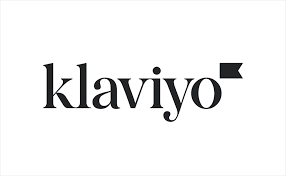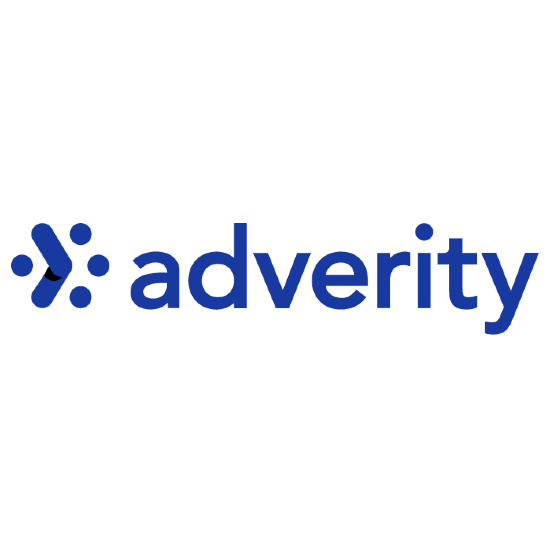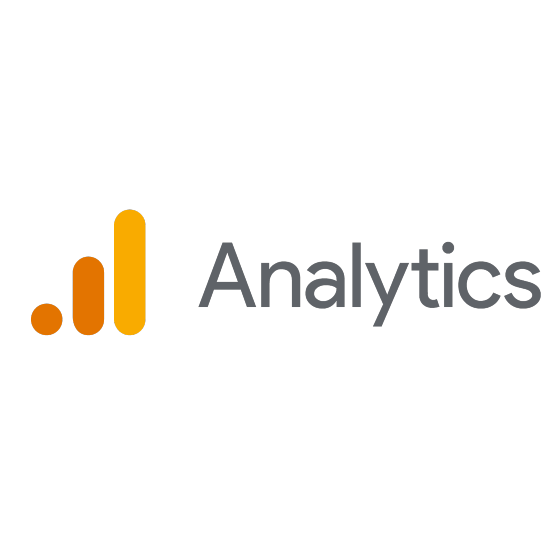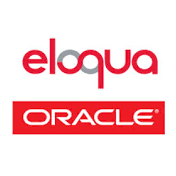10 Best Performance Marketing Platform Shortlist
Here's my pick of the 10 best software from the 20 tools reviewed.
Our one-on-one guidance will help you find the perfect fit.
There are so many different performance marketing platforms that making a shortlist of the best can be tricky. You want tools for tracking, analyzing, and optimizing campaigns in real-time, allowing marketers to adjust strategies for maximum effectiveness—and now need the right solution for your brand and team. I've got you covered! In this post, I share from my personal experience using many different performance marketing tools, and share my picks of the best performance marketing platforms overall.
What Is Performance Marketing Platform
A performance marketing platform is a digital tool that helps businesses track and optimize their marketing campaigns based on specific performance metrics like clicks, conversions, and sales. The purpose is to provide real-time data and analytics, enabling marketers to make informed decisions and adjust strategies for better results. Performance marketing tools integrate various marketing channels and software, streamlining campaign management and enhancing efficiency.
The Best Performance Marketing Platform Summary
| Tool | Best For | Trial Info | Price | ||
|---|---|---|---|---|---|
| 1 | Best for partnership performance marketing | Free demo available | Pricing upon request | Website | |
| 2 | Best for email and SMS marketing | Free plan available | From $45/month | Website | |
| 3 | Best for multi-source data analysis | Free demo available | Pricing upon request | Website | |
| 4 | Best for tracking customer lifecycles | Free plan + demo available | From $800/month + $45/month for additional seats | Website | |
| 5 | Best for social media performance analytics | 14-day free trial | From $149/user/month (billed annually) | Website | |
| 6 | Best for website performance monitoring | Free plan available | From $50,000/year (billed annually) | Website | |
| 7 | Best for account-based marketing teams | Free demo available | Pricing upon request | Website | |
| 8 | Best for attribution intelligence | 14-day free trial | From $50/month | Website | |
| 9 | Best for centralizing performance marketing data | 30-day free trial | Pricing upon request | Website | |
| 10 | Best for actionable insights | 30-day free trial | From $33.99/month | Website |
-

Eloqua
Visit WebsiteThis is an aggregated rating for this tool including ratings from Crozdesk users and ratings from other sites.4.3 -

Optimizely
Visit WebsiteThis is an aggregated rating for this tool including ratings from Crozdesk users and ratings from other sites.4.2 -

Uberflip
Visit WebsiteThis is an aggregated rating for this tool including ratings from Crozdesk users and ratings from other sites.4.3
Overviews Of The Best Performance Marketing Platform
Below, you’ll find my evaluation of the best performance marketing platforms to help you learn more about each option, including its standout features, pros and cons, pricing, and a screenshot of the tool.
impact.com is a platform that helps you manage various partnerships, including affiliates, influencers, and brand collaborations. It offers tools to handle the entire partnership lifecycle, from discovery to optimization.
Why I picked impact.com: I like its comprehensive tracking capabilities. The platform provides detailed insights into partner performance, allowing you to see which collaborations drive the most value. This data helps you make informed decisions to optimize your marketing strategies. Another benefit is impact.com's automated contract and payment management. You can set up customized contracts and automate payments to partners, reducing manual work and ensuring timely compensation.
impact.com Standout Features and Integrations
Standout features include discovery and recruitment tools, contract and payment automation, performance tracking, brand safety monitoring, optimization tools, fraud protection, customizable reporting, real-time analytics, partner communication tools, compliance management, global payment processing, and a user-friendly dashboard.
Integrations include Shopify, BigCommerce, HubSpot, Adobe Commerce (Magento), AppsFlyer, Adjust, AnyTrack, Branch, mParticle, Segments, Google Analytics, and Salesforce.
Pros and cons
Pros:
- Good partnership discovery features
- Supports the entire partnership lifecycle
- Comprehensive reporting features
Cons:
- May take time to set up the platform
- Occasional delays in payment processing
Klaviyo is a marketing platform that helps businesses create personalized customer experiences across various channels such as email, SMS, and mobile push.
Why I picked Klaviyo: Klaviyo offers robust reporting and analytics features that provide deep insights into campaign effectiveness. The platform’s detailed metrics on email and SMS performance, such as open rates, click-through rates, and conversion rates, allow businesses to track and optimize their marketing efforts in real-time. By leveraging these insights, businesses can refine their strategies to maximize engagement and ROI, ensuring that their marketing efforts are both efficient and impactful.
Klaviyo Standout Features and Integrations
Standout features include automated flows for email, SMS, and push notifications, one-time campaign announcements, templates for quick creation, web forms for data collection, and data analysis and segmentation. It also offers A/B testing and AI predictive insights.
Integrations include Shopify, Salesforce, Wix, WooCommerce, Adobe Commerce (Magento), BigCommerce, Google Analytics, Facebook Ads, Instagram, Stripe, PayPal, QuickBooks, Zendesk, and Slack.
Pros and cons
Pros:
- Over 300 integrations available
- Predictive campaign insights
- Tailored automated flows for campaigns
Cons:
- Can't embed videos in emails
- Can get pricey with more active profiles
Adverity is a data platform designed for marketing teams to centralize and manage their data. It helps you collect, prepare, and analyze data from various sources, making it easier to understand your marketing performance.
Why I picked Adverity: I picked Adverity because it gives performance marketers detailed, granular data across all channels, which is key to tracking campaign ROI and adjusting strategies quickly. Its data preparation tools help clean and organize that data so you're always working with accurate numbers. This matters when you're trying to measure and improve performance in real time. Instead of juggling spreadsheets, your team can focus on optimizing campaigns based on reliable insights.
Adverity Standout Features and Integrations
Standout features include AI integration that empowers your team to become data-driven. This means you can leverage artificial intelligence to gain deeper insights into your marketing data by simply asking a question. Additionally, Adverity offers the ability to send your data anywhere you need it, making it easier to share insights across your organization.
Integrations include Google, Meta, TikTok, Google BigQuery, Looker Studio, Facebook Ads, Amazon Advertising, Hubspot, Salesforce, Amazon S3, Snowflake, and Microsoft Azure.
Pros and cons
Pros:
- Can harmonize data from various sources
- Ability to create personalized dashboards
- Scalable for businesses of various sizes
Cons:
- Certain configurations may require technical knowledge
- The initial setup can be time-consuming
Hubspot Marketing Hub helps organizations track their customer lifecycles, allowing them to use this information to attract more leads from the same audience and convert them.
Why I picked Hubspot Marketing: The platform is designed to be an all-in-one solution to meet the needs of all marketing teams. For performance marketing teams, you can use Hubspot Marketing Hub to identify how every interaction contributes to revenue. You can track all of your website visitors’ actions across the entire customer lifecycle to understand behaviors and trigger automated workflows and processes.
Hubspot Marketing Hub Standout Features and Integrations
Standout features include detailed marketing reports that provide all of the data you need to make more intelligent, data-driven decisions across all marketing assets. Hubspot Marketing Hub also allows users to create custom, flexible dashboards, allowing everyone to see the metrics that matter most.
Integrations include Slack, Microsoft Dynamics, Shopify, Salesforce, Google Analytics, Mailchimp, WordPress, Eventbrite, SurveyMonkey, Zendesk, and hundreds more. You can also use the platform’s API or a paid Zapier account if you need to create custom integrations.
Pros and cons
Pros:
- Integrated sales, marketing, and CRM modules
- Easy-to-use platform
- Monitors activities across the customer lifecycle
Cons:
- Can get pricey when upgrading to advanced features
- Mobile app has limited features
Brand24 is a performance marketing platform that equips businesses with real-time monitoring and analytics tools to track and optimize their online marketing campaigns and brand mentions across the web.
Why I picked Brand24: Brand24 serves as an effective performance marketing platform by offering businesses the ability to closely monitor and analyze the performance of their marketing campaigns in real-time across various online channels. By tracking brand mentions, keywords, and hashtags related to specific campaigns, Brand24 provides valuable insights into audience engagement, reach, and sentiment.
Brand24 Standout Features and Integrations
Features include highly customizable dashboards, which enable marketers to tailor their monitoring and analytics views to focus on key performance indicators (KPIs) that matter most to their campaigns. Whether it's tracking engagement rates, sentiment analysis, or influencer activity, these personalized dashboards provide at-a-glance insights that help marketers optimize their campaigns more effectively.
Integrations include Slack and SEMrush.
Pros and cons
Pros:
- Strong competitor analysis
- Affordable pricing makes for businesses of all sizes
- Real-time alerts let you respond to mentions quickly
Cons:
- Only supports a limited number of languages
- Could use more integrations
Google Analytics is a comprehensive website performance monitoring solution that tracks a website’s data to provide marketers with visitors’ behavior.
Why I picked Google Analytics: The platform is one of the most well-known and widely used performance marketing platforms that helps your marketing team monitor website performance. Google Analytics uses a tracking system you can use to log pre-defined marketing goals, such as website purchases. When using Google Analytics, you and your marketing team will get a clear, in-depth overview of metrics, such as conversions, sales, and leads, to determine which of your site’s pages are converting and why, identify audience behavior, and more.
Google Analytics Standout Features and Integrations
Standout features include multichannel insights that use customer data from your different marketing channels to show and predict various insights. You can also use Google Analytics to find where your traffic is coming from, such as websites, search engines, and social media pages.
Integrations include connections with over 1,700 applications and tools, such as GetResponse, Google Ad Manager, Hevo, HoneyBook, Mailchimp, Odoo, Outgrow, Semrush, Zendesk, Zoho CRM, and other software options. You can use the platform’s API or a paid Zapier account to create custom integrations with your marketing systems.
Pros and cons
Pros:
- Great customer support
- Quickly tracks website performance
- Easy to implement in existing projects
Cons:
- Real-time reporting is limited
- Set up requires expert knowledge
6sense helps B2B marketing teams get performance intelligence across their account-based campaigns to help enhance their strategies.
Why I picked 6sense: The platform is a comprehensive B2B account-based performance marketing platform that helps marketing teams identify demand that might be hidden in their current data. With 6sense, you can uncover buyer signals across your account-based marketing campaigns and increase growth by engaging with key buyers. 6sense accomplishes this through its purpose-built artificial intelligence to help your team understand the accounts worth pursuing and which decision-makers to target.
6sense Standout Features and Integrations
Standout features include an intent data network that tracks an extensive number of buyer signals, such as site visits, content consumption, keyword research, and more. 6sense also offers pipeline intelligence tools to help you understand how to develop high-quality marketing pipelines by using real-time data.
Integrations include connections with the technology many performance marketing teams use to monitor their campaigns, such as Bombora, Bound, Clari, Eloqua, Hubspot CRM, LeanData, Marketo, Outreach, PathFactory, Salesforce, and other software options. You can use 6sense API if you need to make any custom integrations with your systems.
Pros and cons
Pros:
- Excellent customer support
- 6sense Academy is available
- Helpful reporting tools
Cons:
- Could use more customization options.
- Some technical issues can slow execution
Anytrack helps marketing teams automatically track conversion data and attribute the information to various sources, allowing users to collect granular customer details and create more intelligent campaigns.
Why I picked Anytrack: With Anytrack, your marketing teams can track and perfect your organization’s digital advertising campaigns. The platform gives your team helpful insights into your marketing initiative’s performance and empowers your team to make data-driven decisions to maximize ROI. Anytrack can attribute your conversion data to ad information sources such as Facebook Pixels, Google Analytics accounts, and more, enabling you to optimize content, websites, funnels, and ads.
Anytrack Standout Features and Integrations
Standout features include audience-building tools to help your team create custom audiences from the information the platform collects from an ad campaign. Anytrack also offers auto-tracking tools to help you record every marketing action that occurs and analyze it without any manual intervention.
Integrations include connections with ad networks and business tools to quickly pass information to your teams, such as ClickFunnels, Facebook, Google Ads, Google Analytics, Outbrain, Pepperjam, Taboola, Typeform, Unbounce, and other software options. You can also create custom integrations with Anytrack’s API or a paid Zapier account.
Pros and cons
Pros:
- Automates data processes
- User-friendly interface
- Accurate attribution intelligence
Cons:
- Highly dependent on third-party applications
- Advanced customization is complex
Salesforce Marketing Cloud helps marketing teams create a single source of intelligence truth by centralizing performance marketing data.
Why I picked Salesforce Marketing Cloud: The platform helps medium to large-sized organizations centralize their performance marketing intelligence across their preferred channels. Salesforce Marketing Cloud offers an extensive API library, allowing you to connect your data from the most popular platforms to help your team have all the information they need on one screen. With Salesforce Marketing Cloud, you get the flexibility to connect any data source you’re using instantly and use artificial intelligence to identify your dataset within the platform, empowering your team to map all fields and measurements in a consistent, organized fashion so you can focus on the information.
Salesforce Marketing Cloud Standout Features and Integrations
Standout features include a data dashboard that helps you visualize your insights and turn the information into visual explanations so everyone on your team can take action. The platform also uses an automated regression modeling tool along with statistical analysis methods to help you turn a significant number of time of analysis into a few quick minutes.
Integrations include connections with popular business and marketing platforms to help your team collect the data they need, such as Attentive, Brevo, CallRail, censhare, Formstack, Google Analytics 360, Hubspot Marketing Hub, Leadsbridge, Pipeliner CRM, Workfront, and other software options. You can also use the platform’s API or a paid Zapier account if your business needs custom integrations.
Pros and cons
Pros:
- All-in-one marketing tool
- Enables many customization options
- Handle multiple campaigns simultaneously
Cons:
- Steep learning curve
- Not suitable for small businesses
Adobe Analytics provides marketing teams with actionable performance insights, allowing them to analyze data and use it to build better customer experiences.
Why I picked Adobe Analytics: Adobe Analytics has a place in this list because it can help performance marketing teams collect actionable insights to help your business develop memorable customer experiences. With Adobe Analytics, you can collect marketing data from multiple channels and bring it under one roof, allowing your team to get real-time insights based on customer behavior. The platform also offers attribution capabilities that empower you to see which strategy is behind your conversion rates so you can invest more in what’s working.
Adobe Analytics Standout Features and Integrations
Standout features include artificial intelligence and machine learning tools that help you collect data and identify hidden opportunities. Adobe Analytics also offers ad hoc analysis capabilities that allow you to build custom analysis projects to help you answer your most significant questions about what’s happening with your marketing campaigns.
Integrations include connections with over 100 third-party applications to help share data and save your team’s time, such as Amplitude, Campaigner, Convert Experiences, Freshpaint, Hootsuite, Improvado, Nexoya, Rambox, Skai, Uptempto, and other software options. If you’re looking to create custom integrations, you can use Adobe Analytics’s API or a paid Zapier account.
Pros and cons
Pros:
- High level of customization
- Gathers a wide range of actionable insights
- Robust tracking capabilities
Cons:
- May require additional infrastructure investment
- Not suitable for small businesses
Other Options
It wouldn’t be right to leave you with the options above when many more performance marketing platforms are available. So, I added an extra list of solutions that are worth some additional consideration during your search.
- Brew
For content planning
- Skai
For artificial intelligence
- Twilio Segment
For audience targeting
- Funnel.io
For marketing data collection
- Klue
For competitive insights
- Fluency
For ad planning & optimization
- Supermetrics
For integrating 150+ data sources
- monday CRM
For data dashboards.
- Pendo
For creating better digital experiences.
- Meltwater
All-in-one tool for public relations and social media.
Selection Criteria For Performance Marketing Platform
Here’s a short summary of the main selection and evaluation criteria I used to develop my list of the best performance marketing platform for this article:
Core Functionality
While there are performance marketing platforms that provide multiple tools and capabilities or focus on delivering one specific feature, there are particular functionalities these solutions offer. The following brief description discusses the core functionality that makes the options in this list performance marketing software.
- Data analytics; gather, process, and present data from various marketing channels and campaigns. They provide insights into key performance indicators (KPIs) such as click-through rates, conversion rates, and customer acquisition costs.
- Campaign optimization; allow marketers to adjust and optimize their campaigns in real-time based on the insights gained from data analytics. This involves making changes to targeting parameters, budgets, and ad creatives.
Key Features
Before adding the performance marketing solution options to the list above, I researched the top features I found that are beneficial to marketing teams. Here are some of the key features you’ll find in top performance marketing platforms.
- Real-Time Feedback: With performance marketing tools, you will receive real-time data regarding your marketing strategies, which you can use to determine whether you need to make any changes.
- A/B Testing: Reliable performance marketing tools will provide A/B testing tools to help you identify the best campaigns to present to your target audience.
- Campaign Results Tracking: You can use performance marketing solutions to set goals and track the results of your marketing strategies, and assess these efforts to understand whether they’re a success.
- Collaboration Tools: Many performance marketing platforms enhance collaboration among teams, making it easier to make contributions to campaigns while monitoring their work’s impact in real-time.
- Audience Segmentation: You can use performance marketing platforms to segment audiences according to various factors, such as interests, demographics, past purchases, or behavior, allowing you to send personalized content and increase engagements and conversions.
- Compliance and Fraud Protection: Performance marketing tools can include safeguards to guarantee adherence to advertising laws and regulations while also deterring fraud by implementing sophisticated fraud detection algorithms to help monitor and prevent ad fraud.
Usability
When choosing a performance marketing software solution, you want to use a platform that’s easy to navigate without any complications. They should be user-friendly, making it easier to view essential metrics and help you make informed marketing decisions. So, I look for performance marketing platforms that make it easy for users to scale advertising efforts and meet an organization’s requirements. I accomplish this by reading software reviews from recent or current users.
Software Integrations
Integrating the performance marketing solution with your current web tools and other business management solutions is essential. This makes it easier to create a business tool ecosystem that communicates with each other. This ensures your organization’s marketing, sales, and customer support teams don’t have to manually import data between multiple tools, significantly enhancing your team’s productivity. Examples include the ability to integrate with marketing analytics software, marketing dashboards, attribution reporting, and social media management tools.
Dashboards & Reports
When implementing a marketing campaign, your performance marketing platform can collect real-time data and present the information in a centralized area, empowering your team to decide how to optimize campaigns. I look for performance marketing platforms that achieve this by offering data dashboards and reporting capabilities to help your marketing team precisely track and attribute marketing efforts across multiple touchpoints and channels. Dashboards and reports will give you useful information about your campaigns, media, or keywords that are generating the most conversions.
Customization
I look for performance marketing platforms that can provide customization capabilities in two ways. First, it helps you use the information you collect and tailor messages to specific audience segments, allowing you to have different marketing messages for different genders, age groups, or geographic locations. This will help you differentiate your business from your competition, making it more likely that you’ll be noticed by target audiences. Second, as your business grows, you may need more functionality or other capabilities compared to other companies in the same industry. So, I added many options allowing users to customize the platform to their business requirements.
People Also Ask
When looking for performance marketing platforms, many people ask similar questions regarding these tools. So, to make this article more robust, I answered the most frequently asked questions about performance marketing software.
How much does performance marketing platform cost?
The final cost of performance marketing solutions will depend on various factors, such as features, the amount of data you’re collecting, or the vendor. For small businesses that need to monitor small amounts of marketing data and optimize a few campaigns, you can be looking at paying up to $50/month or so. Larger enterprises can expect to have monthly payments in the thousands. But, to give a more specific range, you can pay anywhere between $18/month to $400/month, according to my research above.
What is performance marketing with examples?
Your business can use different types of performance marketing to drive traffic and measure specific actions. The following are some examples of the channels that performance marketing measures.
Example 1: Optimize Your Email Marketing Campaigns
Email marketing is a practical and versatile performance marketing channel businesses use to build trust and loyalty with subscribers, deliver relevant content, and encourage people to take action. It also allows you to segment audiences based on various factors and tailor messages accordingly. When using it for performance marketing, one helpful piece of email marketing advice is setting clear goals and metrics, such as open rate, click-through rate, conversion rate, and revenue per message. You’ll also need to test and optimize your emails’ designs, copy, subject line, CTA (call to action), and timing.
Example 2: Optimize Your Google Ad Words Campaigns
Google Ad Words is a paid search marketing tool that allows advertisers to pay for clicks on their sponsored ads on search engines. They can also pay to place ads on dedicated posts or videos on a website that publishes similar content. From there, your performance marketing tool will help you measure crucial metrics such as cost per acquisition (CPA), cost per click (CPC), cost per leads (CPL), or cost per impression (CPM).
What are the benefits of performance marketing platforms?
Performance marketing platforms are essential tools for businesses aiming to maximize their marketing ROI and achieve measurable results. The following is a list of benefits you can experience when using performance marketing solutions, highlighting how they empower your company to drive cost-effectiveness and create data-driven marketing campaigns that deliver tangible results in an ever-evolving digital world.
- Precise Targeting: Performance marketing platforms can increase your advertising spend ROI through precise audience targeting.
- Measurable Results: Achieve a 73% higher conversion rate by tracking and analyzing every aspect of your marketing campaigns in real-time.
- Cost Efficiency: Reduce customer acquisition costs through performance-based pricing models.
- Data-Driven Decision Making: Marketing executives believe data-driven marketing is crucial for success, which performance marketing platforms can enable.
- Dynamic Optimization: Optimize ad creatives, placements, and targeting on the fly to continuously improve campaign performance.
- Multichannel Reach: Reach audiences across various digital channels, with many consumers making a purchase after viewing a Facebook ad.
- A/B Testing: Implement A/B testing to improve ad performance, with A/B tested emails achieving a higher click-through rate.
- Real-Time Adjustments: React to market changes instantly, as campaigns can be adjusted in real time based on performance data.
- Scalability: Easily scale marketing efforts as your business grows, with scalability being a top benefit of performance marketing, according to marketers.
- Competitive Advantage: Gain a competitive edge by staying ahead in the dynamic digital advertising landscape, where marketers indicate increasing competition.
Other Marketing Analytics Reviews
Other than performance marketing platforms, many marketing analytics tools are available to your business. Here are other marketing analytics tool reviews that offer in-depth detail, much like my list above, discussing the specific type of information you can measure.
- Marketing Analytics Tools
- Marketing Measurement Tools
- Marketing Planning Tools
- Market Intelligence Software
- Social Media Analytics Software
- Marketing Attribution Software
- Marketing Account Intelligence Software
- Email Marketing Analytics Tools
- Content Analytics Software
Conclusion
Marketing trends are showing popularity in all things digital marketing, and performance marketing platforms offer a significant promise for businesses looking to engage and convert prospects at scale for lower costs. Any of the options I evaluated above will help you develop your brand, increase awareness, and engage with customers to create strong relationships.
If you need additional help with other marketing areas or want up-to-date advice from top marketing professionals, sign up for The CMO newsletter and get the information you need to enhance your current processes and results.
You Might Also Like: How to Optimize Data Quality for Marketing Automation























